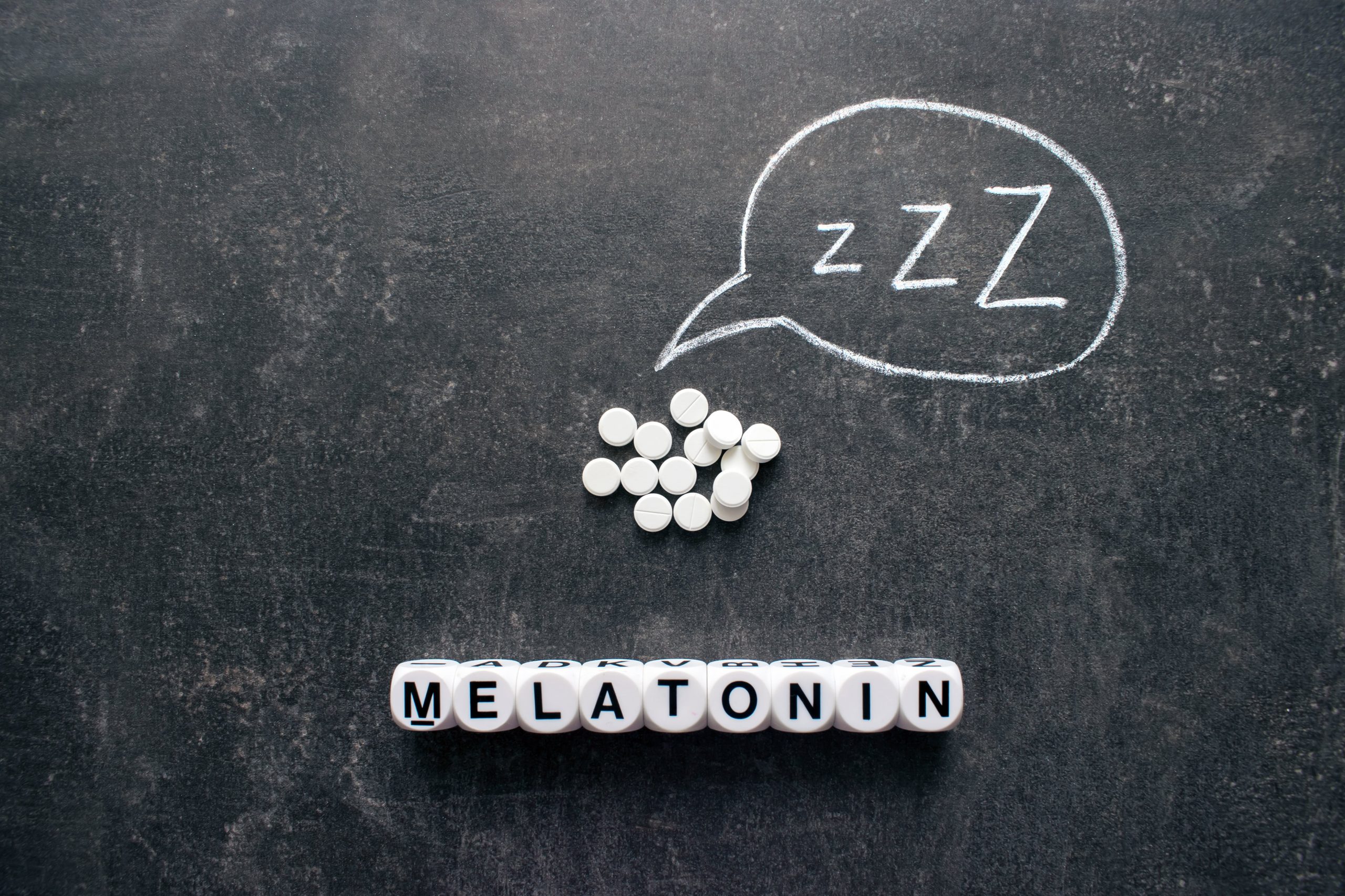Melatonin is a hormone released by your brain and is responsible for sleep and wake cycle. It is also involved in other bodily functions, including regulation of blood pressure and temperature. Besides being found naturally in your body, it is sold as supplements.
Many people have trouble sleeping – falling and staying asleep. In America, about 50-70 million people are affected by poor sleep. Studies indicate that most American adults have sleep duration of less than 6 hours per night. Not having enough sleep can severely affect your health. For instance, poor sleep can deprive you of energy, increase your risk of diseases, and lower your focus. Most have tried several ways like establishing routine bedtime and avoiding screens before bed, to have better sleep but they have failed. Melatonin supplements have become a popular remedy for such people. This article explains how this hormone works, uses, and safety.
What Is Melatonin
Melatonin is a hormone that your brain produces naturally. It is released by the pineal gland, which is found in the brain. The hormone can be found in other areas of the body, such as gut, eyes, and bone marrow. Melatonin is often referred to as the “sleep hormone,” and it perfectly supports sleep at high levels. However, melatonin doesn’t shut your conscious. It only signals your body to be aware of nighttime so that it can begin relaxing and making you fall asleep. People struggling with sleep (insomnia) and those with jet lag, often use melatonin supplements. In many countries, melatonin is sold as an over-the-counter (OTC)medication that you can get without prescription. Apart from improving sleep, the supplement may support eye health, relieve symptoms of tinnitus, treat gastric ulcers and heartburn, and stimulate the production of growth hormone in men.
How Does Melatonin Work?
Melatonin work synergistically with your body’s circadian and diurnal rhythm. For understanding, the circadian rhythm is a virtual internal clock your body uses. It tells your body that it is time to sleep, wake, or eat. Studies indicate that melatonin also controls your body temperature, blood pressure, as well as regulating some hormones. The production of melatonin is stimulated by looming darkness. When the darkness is established, your body is signaled that it is time to sleep. The hormone also helps your body relax by binding to receptors. For example, melatonin slows down nerve activity by binding to neurotransmitters in your brain. It can also inhibit the production and action of dopamine, which is a hormone the keeps you awake. Although researchers have not fully understood how melatonin results to sleep, they believe that these processes are responsible for sleep. On the other hand, light reduces melatonin production. This tells your body that it’s time to wake up. Since melatonin helps your body relax and be ready for sleep, those who do not make much of it at night can have difficulty falling asleep. Melatonin production at night may be hindered by a number of factors. This may include smoking, stress, exposure to blue light, exposure to less natural light during the day, working on shift, and advanced age. Taking synthetic melatonin or supplements of melatonin may help restore its levels and normalize the circadian rhythm.
Melatonin For Sleep
Several studies indicate that taking melatonin prior to bed may help you fall asleep. Some studies reviews found that melatonin reduced the time it took people with sleep disorders to sleep by 7 minutes, as well as improving quality of sleep. Melatonin can also be use by people with jet lag. This is a short-lived sleep disorder that occurs when your body’s circadian rhythm cannot synchronize with the new time zone. It can also occur in people working in shifts, since they stay awake during the time normally meant for sleep. Melatonin may help rectify jet lag by harmonizing your body’s circadian rhythm with the new time zone.
Other Uses of Melatonin
May Support Eye Health
Melatonin supplement have been shown to be effective at supporting eye health. It contains potent antioxidant properties that can reduce the risk of eye conditions, including age-related macular degeneration (AMD). Taking melatonin every day may shield the retinas from damages.
May Treat Gastric Ulcer and Heartburn
Melatonin may help treat gastric ulcer and heartburn – thanks to its antioxidant properties. The hormone can effectively treat gastric ulcer caused by Helicobacter pylori, especially when taken with tryptophan and omeprazole. Heartburn is a common symptom of gastroesophageal reflux disease (GERD) and is often treated with omeprazole. Evidence suggest that a combination of melatonin and omeprazole can help reduce heartburn more effectively than omeprazole alone.
May Ease Symptoms of Tinnitus
Tinnitus is an aural condition that presents with persistent ringing in the ear. It is at its worst when there is marked silence, such as when you are trying to fall asleep. Taking melatonin may help reduce symptoms of tinnitus and make you fall asleep easily.
May Increase Production of Growth Hormone in Men
The production of human growth hormone (HGH) is at its peak when you sleep. Taking melatonin may help increase the levels of HGH in young men. Evidence suggest that it triggers the pituitary gland to produce more HGH. It can also reduce somatostatin levels, especially when combined with resistance training. Somatostatin is a hormone that blocks the actions of HGH.
Dosage
It is recommended to start taking melatonin supplement from a lower dose. You also need to talk with your healthcare provider before taking OTC melatonin alongside your treatment regimen. At least 30 minutes before bedtime, you need to take 0.5 mg (500 mcg) of melatonin. If that doesn’t help with sleep, you can adjust between 3 mg and 5 mg.
Side Effects
Melatonin supplements have been found to be safe, non-addictive, and nontoxic. However, some people may experience nausea, headache, and dizziness. It can also interact with medications, such as antidepressants, anticonvulsants, immunosuppressants, oral contraceptives, antihypertensives, blood thinners, diabetic medications, and sedatives.
Conclusion
Melatonin is a hormone released by the pineal gland in your brain. It works with circadian rhythm to promote sleep. It also regulates blood pressure and body temperature. Supplements of melatonin are safe and can help reduce symptoms of tinnitus among other health benefits.
- Our Big Kitchen’ (OBK) is a non-profit organization located in Sydney, Australia - April 10, 2023
- Duos CBD, a hemp product E-commerce website - April 10, 2023
- SOFA SPOONING SEX POSITION - April 7, 2023









